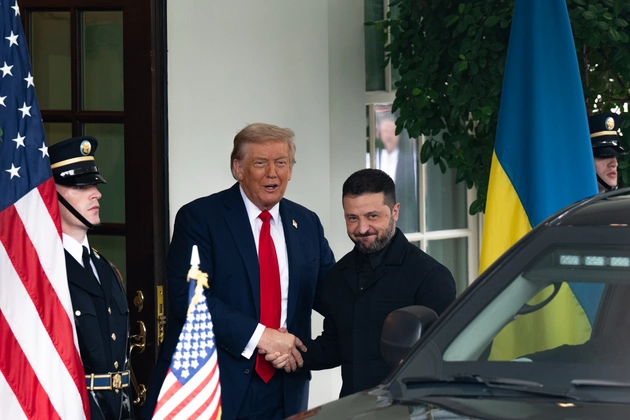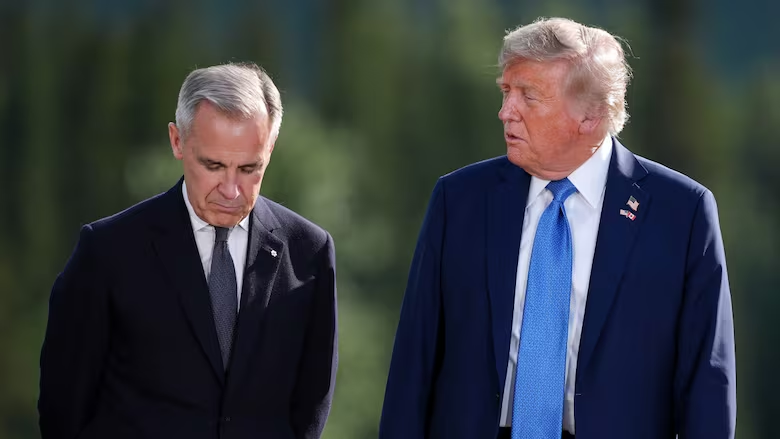Former U.S. President Donald Trump is signaling a bold new step in international diplomacy, with reports suggesting he intends to arrange a direct meeting between Ukrainian President Volodymyr Zelenskyy and Russian President Vladimir Putin. This development comes on the heels of several European leaders visiting the White House to discuss the ongoing war in Ukraine, the stability of Europe, and the future of transatlantic relations. Trump’s move has sparked intense debate in Washington, European capitals, and Kyiv, raising questions about whether such a meeting could bring an end to the conflict or alter the delicate balance of power in Eastern Europe.
The Context of European Leaders’ Visit
In recent weeks, Trump welcomed a string of European heads of state to the White House. These visits were largely aimed at reaffirming alliances, assessing the security situation in Ukraine, and discussing the role of NATO in a rapidly shifting geopolitical landscape. European leaders, including those from France, Germany, and Poland, reportedly pressed Trump on maintaining American support for Ukraine while also exploring possible diplomatic avenues for de-escalation.
For Europe, the war in Ukraine is more than a distant conflict; it directly affects energy supplies, security architecture, and political stability across the continent. Leaders emphasized to Trump that any negotiated settlement must respect Ukraine’s sovereignty while providing guarantees against future aggression. Yet, they also acknowledged the war’s strain on resources and the growing calls within their own nations for a pathway to peace.
Trump’s Diplomatic Gamble
Trump has long styled himself as a dealmaker, frequently asserting that he could bring an end to the Ukraine war more swiftly than current U.S. or European policymakers. By proposing a Zelenskyy-Putin meeting, he appears intent on putting that philosophy into practice.
The proposed meeting would be unprecedented since full-scale war broke out in February 2022. While Ukrainian and Russian delegations have met in earlier rounds of negotiations, direct talks between Zelenskyy and Putin have not taken place during the conflict. Trump’s plan suggests he is prepared to take a highly unorthodox approach, bypassing traditional channels and betting that personal diplomacy could succeed where broader negotiations have failed.
Potential Benefits of Direct Talks
Advocates of Trump’s proposal argue that a face-to-face meeting between Zelenskyy and Putin could break the deadlock that has defined the war for over two years. The battlefield has settled into a war of attrition, with neither side able to claim decisive victories. Civilian casualties continue to mount, infrastructure is being destroyed, and millions of Ukrainians remain displaced.
A summit, some argue, could provide an opening for compromise or at least set the stage for confidence-building measures. Even limited agreements, such as prisoner exchanges, humanitarian corridors, or localized ceasefires, could alleviate suffering and create momentum toward a broader settlement.
Furthermore, Trump’s involvement might add pressure on both sides. For Ukraine, continued American support remains critical for military and economic survival. For Russia, Trump’s stature as a major Western figure might provide an incentive to engage seriously, particularly if Moscow believes it could secure concessions unavailable through current diplomatic channels.
Risks and Criticisms
Yet, the plan is fraught with risks. Critics caution that a premature summit could undermine Ukraine’s negotiating position, especially if it forces Zelenskyy to consider concessions on sovereignty or territorial integrity. Kyiv has repeatedly said that negotiations cannot begin without Russia withdrawing troops from occupied territory. Any perception that Ukraine is being pressured into talks could weaken Zelenskyy domestically and strain his relationships with allies.
European leaders, though supportive of peace efforts, are also wary. They fear that Trump might prioritize a quick settlement over a durable one, potentially leaving Ukraine vulnerable to future aggression. A poorly structured deal could also divide NATO, pit Western allies against one another, and embolden Russia.
In Washington, Trump’s plan is already dividing opinion. Some lawmakers argue that a bold diplomatic push is overdue, particularly given the high cost of military aid. Others warn that Trump’s unilateral approach could weaken U.S. credibility, especially if he bypasses traditional diplomatic institutions or sidelines NATO partners.
The Global Implications
Beyond Ukraine and Russia, the potential Zelenskyy-Putin meeting carries global implications. China, which has sought to position itself as a neutral mediator, will be closely watching whether Trump’s initiative gains traction. Beijing may interpret the move as a challenge to its own influence in global diplomacy. Meanwhile, other countries in the Global South—many of which have stayed neutral in the conflict—may welcome any sign of dialogue as a step toward de-escalation.
For Europe, the stakes are existential. Leaders are caught between the desire for peace and the fear of setting a dangerous precedent. A settlement perceived as rewarding aggression could destabilize Europe for decades, while continued war threatens to exhaust resources and fracture political unity.
Conclusion
Trump’s plan to orchestrate a meeting between Zelenskyy and Putin following consultations with European leaders marks one of the boldest diplomatic initiatives floated since the outbreak of the Ukraine war. While the idea of direct talks holds potential to break the stalemate and alleviate suffering, it also presents serious risks, particularly if it undermines Ukraine’s sovereignty or fractures Western unity.
The coming weeks will reveal whether Trump can turn his vision into reality, and if so, whether it will mark the beginning of a new chapter in the conflict—or another failed attempt at peace. For now, the world watches closely as diplomacy, strategy, and personal ambition converge on one of the most consequential stages in modern history.



